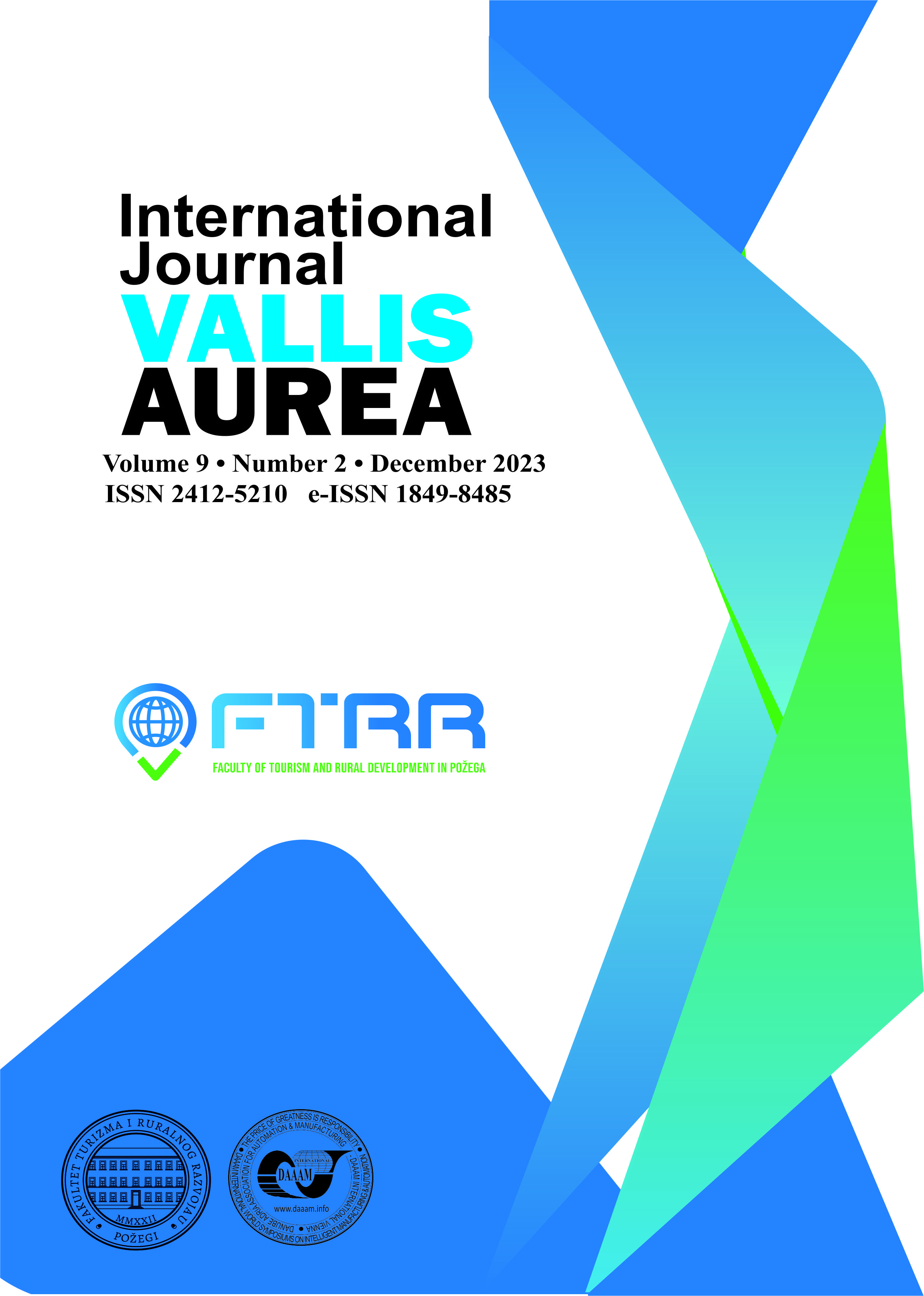Digital communication of police officers during the Covid-19 pandemic
DOI:
https://doi.org/10.2507/IJVA.9.2.3.104Keywords:
police, COVID-19 pandemic, digital communication, rural areas, suburban areasAbstract
This qualitative study aims to determine which digital communication channels and for what purposes were used by police in rural and suburban parts of Croatia during the COVID-19 pandemic and the obstacles they encountered in doing so. The purpose of the research is a scientific contribution to communication and police sciences, given the lack of such research not only in Croatia but internationally. The practical purpose is the identification of possibilities and limitations of digital communication in policing and aspects of police communication that are important during crises. The semi-structured interview was used in four focus groups of 10 research participants. The results show that during the COVID-19 pandemic, at the request of citizens, police officers often resorted to communication via social media, even though such a method of police communication was not defined as official at the time and despite other serious obstacles such as insufficient technological infrastructure and lack of access to the Internet. The need to create precise work guidelines was identified to avoid problems and prevent citizens’ resistance towards introducing such novelties. This research also points to establishing guidelines and communication protocols between public services to avoid confusion and misinformation.
References
1. Alessandro, M. et al. (2021) Transparency and Trust in Government. Evidence from a Survey Experiment. World Development, 138, 105223. doi.org/10.1016/j.worlddev.2020.105223
2. Denef, S. et al. (2012) Best Practice in Police Social Media Adaptation. COMPOSITE – Comparative Police Studies in the EU. http://hdl.handle.net/1765/40562.
3. Derks, D. and Bakker, A. B. (2014) Smartphone use, work–home interference, and burnout: A diary study on the role of recovery. Applied Psychology, 63(3), 411–440. doi.org/10.1111/j.1464-0597.2012.00530.x
4. Grant, R. M. (2013) Contemporary Strategy Analysis: Text and Cases. United Kingdom: Wiley.
5. Hobbs. D. (2020) Why online and telephone reporting makes sense during COVID-19. Police1 by Lexipol. https://www.police1.com/coronavirus-covid-19/articles/why-online-and-telephone-reporting-makes-sense-during-covid-19-M9SX0mqYflSzfVlz/
6. Kaplan, G., Moll, B. and Violante, G. L. (2020) The Great Lockdown and the Big Stimulus: Tracing the Pandemic Possibility Frontier for the U.S. National Bureau of Economic Research. Working Paper. No. 27794. doi.org/10.3386/w27794
7. Kovčo Vukadin, I., Borovec, K. and Ljubin Golub, T. (2013) Policing in Croatia: The Main Challenges on the Path to Democratic Policing. In: Meško, G., Fields, C., B., Lobnikar, B., Sotlar, A. (eds.), Handbook on Policing in Central and Eastern Europe. Springer: New York, 31–55. doi.org/10.1007/978-1-4614-6720-5_4.
8. Kutnjak Ivković, S. et al. (2023) Policing in the 21st Century: Challenges and Opportunities. In: Kutnjak Ivković, S. et al. (eds.), Exploring Contemporary Policing Challenges: A Global Perspective. New York: Routledge, 1–15. doi.org/10.4324/9781003136965.
9. Marx, G. T. (2007) Desperately Seeking Surveillance Studies: Players in Search of a Field. Contemporary Sociology, 36(2), 125-130. doi.org/10.1177/009430610703600206
10. Police Executive Research Forum (2021) CRITICAL ISSUES IN POLICING SERIES Lessons from the COVID-19 Pandemic: What Police Learned from One of the Most Challenging Periods of Our Lives. Washington D.C.: Police Executive Research Forum. https://www.policeforum.org/assets/COVIDPandemic.pdf
11. Smith, E. (2005) Online Crime Reporting: Should Law Enforcement Turn to the Internet for Savings? https://icma.org/sites/default/files/5641_.pdf
12. Thielgen, M. M., Schade, S. and Niegisch, P. (2022) Police Officers ’ Interrogation Expertise and Major Objectives in Police Service and Training: A Comprehensive Overview of the Literature. Frontiers in psychology, 13. doi.org/10.3389/fpsyg.2022.823179.
13. Waddington, D. (2019) Introduction: The Police and Social Media. In: Akhgar, B., Bayerl, P.S., Leventakis,G. (eds.) Social Media Strategy in Policing. Security Informatics and Law Enforcement. Springer, Cham. doi.org/10.1007/978-3-030-22002-0_1
14. Watzlawick, P., Bavelas, J. B. and Jackson, D. (1967) Pragmatics of Human Communication – A Study of Interactional Patterns, Pathologies and Paradoxes. New York: W. W. Norton.

Downloads
Published
Issue
Section
License
Copyright (c) 2023 Vallis Aurea

This work is licensed under a Creative Commons Attribution-NonCommercial-NoDerivatives 4.0 International License.
Authors of papers for publishing in the journal agree under a Creative Commons Attribution-NonCommercial-NoDerivatives 4.0 International License.https://creativecommons.org/licenses/by-nc-nd/4.0/






